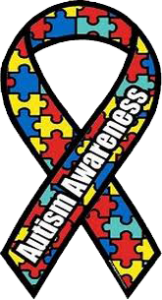There is a divide within the Autism community between those with high functioning Aspergers and those with lower functioning Autistic kids. Why do you think this is? I have my opinions but I would love to hear yours.
How do you guys think we can bridge the gap?




The problem is in lacking understanding of the complexity of low functioning ASD.
While high functioning ASD mostly deals with social awkwardness (as it is known most of high functioning ASD kids are very a like), low functioning ASD imposes many more challenges that require different approaches/techniques to deal with various combination of present issues that vary from one child to another.
I think it is a lack of understanding and because the issues involved in working with high functioning and low functioning children are so very different. When a child's cognitive skills are impacted by the autism, people can kind of "get" that, but when a kid's intellect is not affected, people don't understand or make allowances for their autistic behaviors. They think the behaviors are intentionally and the kid is being bratty or sassy. If the teacher asks a kid, "How many times have I told you to put that book back in your desk?" What they want is for the kid to put the book away, but the kid with autism is going to say, "Five." He is not being rude or sassy. The teacher asked a factual question and she got a factual and accurate answer. A high functioning kid can be in a math class well above his grade level, and walk out of the bathroom stall with this pants down to tell his teacher something.
In my classroom, I teach kids all over the spectrum and the challenges for high functioning and low functioning kids are so different. The saying that sums it up best is "If you've met one kid with autism, you've met one kid with autism."
And of course I forgot one of the major ones and that's the idea that a lot of people seem to embrace, that this really isn't a spectrum, or a slide scale… it's two entirely different things. (In reality, I think it's a collection of slide scales, that there are different types of autism and each of those types has different severities, but that's a whole 'nother discussion).
From the high functioning perspective I can tell you that there are days where I feel EXACTLY like I can tell your low functioning kid is feeling. I understand him. I get why he's rocking and bashing his head into a wall… I've done it. I get why he watches things spin for hours and days at a time… I've done it. I get why he gets stuck on something and detach from it… I've done it. I get why he can't make any words come out… I've been there.
There's a reason I can walk into a room and meet a kid with autism for the first time and he'll take to me in a way he's never taken to anyone else before (no, it won't happen every time, but it has). I think it's because he can tell I 'get' him.
But I don't live there all the time. And there are other things I won't get. Because every person is different, and every case is different, and this is a spectrum, and I've been lucky enough to be able to pass for normal when I try really hard. That doesn't mean I can't understand your child at all. And it doesn't mean I can't offer some suggestions that may help.
A person with partial hearing loss certainly doesn't know what it's like to be completely deaf… but they have a much better idea of the struggles and frustrations involved than someone with perfect hearing.
From the way you phrased this I'm reading it to mean you're talking about the gap between those adults with hfa/aspergers and the parents of lower functioning kids.
The problem is multifaceted…
Disrespect
– respect seems so rare these days
Resentment
– towards those who seem to have had it so much easier, but still complain
– towards parents who have access to therapies and other things that were simply not available back then
Frayed Nerves
– of tired, sleep-deprived parents, who are just trying to make it through the day and don't have any time or energy left
– of beat-down adults who have seemingly had to struggle through every single moment of their lives
Envy
– 'life would be so much easier if my kid were that high functioning'
– 'life would have been so much easier if my parents had actually tried ANYTHING to help me'
Hatred
– of people who think that this horrible disease that is ruining their children's lives is just an alternate way of thinking that they should embrace
– of people who think that this way of thinking that has defined them as long as they can remember, which has become a part of them, is some horrible disease that needs to be eradicated
Doubt (the internet breeds doubt, we could be anyone)
– "is that mom really the sweet person she pretends to be online, or is she beating that poor child the way my dad beat me?"
– "is that person really autistic or are they just looking for attention?"
The inevitable clash between mindsets:
This one is a big one and the most frustrating. A parent posts something; an aspie answers in a matter-of-fact way: the world is black and white, every problem has a solution, here's a solution; the parent sees a rude jerk who takes no account for her feelings.
Aspies expect that here, of all places, in the autism community… here, they'll be understood. They can drop their guard and just be themselves because these people understand. They deal with their kids every day, surely I can be myself here…
But parents of autistic kids seem to expect aspies to be well-adjusted and socially adept even though it should be completely obvious that they won't be. They think "high functioning adult" and for some reason their entire knowledge of what autism is and entails flies out the window. They expect to be able to communicate as if they're talking to another NT adult, and it just doesn't work that way.